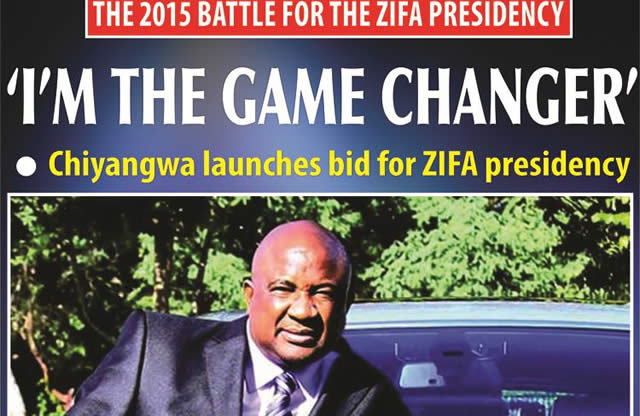LAST ENTERTAINMENT BASTION BLACKED OUT

 Lifestyle Writers—
Lifestyle Writers—
Zimbabweans who cannot afford other sources of power besides electricity are struggling to find alternative sources of entertainment as television time has become a victim of load shedding. Many subscribers are calling on Multichoice Zimbabwe the providers of DStv services to urgently introduce pay per view services or see their business return to being an exclusive for the elite who can afford not only to buy generators, but also run them for long periods on a daily basis.
“Multichoice must realise that this situation is untenable. I stopped subscribing a few weeks ago when the really intensive load shedding started. It just did not make sense for me to renew my subscription and be charged for another month’s viewing when in reality my family would have managed to access less than 24 hours of viewing in that whole month.
“The truth is that the service from DStv has not been that hot in the first place but only because there was not much option, we soldiered on. But this has just become too much,” said Mike Mureri from Highlands.
Mr Mureri says although he owns a generator he cannot afford to run it all the time there is power cut. There are many who believe that Zimbabweans are desperately starved for live quality and reasonably priced entertainment thus forcing them to rely on TV. “On the music scene we have the noisy Zimdancehall gigs which appeal to certain groups only. But when you turn to the other genres, not much new stuff is coming up. You can only go to live shows so many times when the musician keeps on playing the same stuff. When was the last time Macheso, Bob Nyabinde, Victor Kunonga and Prudence Katomeni released an album?” said Mr Mureri.
Others pointed out that local football is not exactly at what they would describe as top flight levels therefore attending matches is something that only the most dedicated fanatic still considers an option. For the young, the situation is not much different either.
“So there are lots of activities out there like parties, gigs and all that. But it costs money, not just to go there, but also to dress for being seen there. So you can only do that so many times in a month when you are dependent on your parents for money,” said a teen in the CBD who identified himself as Tadiwanashe.
These are the gaps that TV has been filling. With Zimbabwe Broadcasting Corporation struggling to provide programming that suits every taste most people turned to satellite television over the past couple of decades. Free-to-air decoders became the most popular among the low income groups as they were a once off expense. But the cutting off of South African Broadcasting Corporation channels at the behest of the Botswana government a few years ago practically killed that market as only a few gospel channels were left open.
DStv through Multichoice Zimbabwe seemed to have it made overnight as thousands of households who had hitherto only used free to air decoders turned to the pay channel.
With bouquets starting at as little as $10 a month, it looked like DStv had something for everyone. They even introduced the shortlived Go TV option for which subcribers did not need a cumbersome satellite dish and its attendant expenses like installation and refocusing costs. There were grumbles about the pricing and content, but most people like Mike Mureri knew that there was really little choice and just paid up.
But now the situation seems to have changed. With load shedding cutting off access for whatever DStv had on offer, more and more people are opting to go without it. The Saturday Herald Lifestyle has established that the service provider appears to be facing a challenge of an increasing number of accounts becoming inactive. A number of people who spoke to the writers said they had stopped subscribing as they felt that they were paying DStv for nothing.
“When I stopped paying they immediately called me to convince me to keep my account active. I told them that until the power situation normalised there was little point in just giving them my money for services I cannot access. “Last week they called me again and I asked them what had changed,” said Mrs Lilian Mujakachi from Eastlea.
Questions sent to Multichoice Zimbabwe last week were still unanswered at the time of going to print but DStv seems to be sensitive to the problem which may not be limited to Zimbabwe only. A few weeks ago they sent out a survey to their subscribers registered for DStv Insider – customer care and market intelligence service – asking where the client lived, how much power cuts disturbed their TV access and solutions they would want DStv to offer.
Most people asked by this publication said that they would want to see a fairer pricing system as they feel that South Africa and Nigeria get preferential treatment at the cost of other countries including Zimbabwe.
“Why is it that South African and Nigerian Compact Bouquet subscribers get access to better content at cheaper prices? They get top class sport channels while in Zimbabwe we have repeats and insignificant sport coverage,” complained Tatenda Makoni from Tafara.
“I am disappointed with this company, it is because they do not have competition. It seems their prices favour Nigeria and SA only and they want to fix us, even after paying $32 they still cannot allow you to watch SS3 or Live Boxing. They do not even consider the income per capita in this country. They are taking advantage of us because they know ZBCTV is the worst under the sun and it’s not fair to take advantage of our desperate situation,” said one Farai Mwenda from Kuwadzana.
DStv’s Compact Bouquet monthly subscription cost $32 in Zimbabwe, R319 equivalent to $23,88 in South Africa and N6 000 equivalent to $30,10. The conversion rates were valid as of 10 am Central African Time Friday morning. But the Nigerians do not seem to be a happy lot either. An article in The Guardian says that Nigerians believe that Dstv is ripping them off:
“A Lagos-based engineer, Taofik Salaudeen, who is a premium subscriber, claimed that the company just takes decisions without regard to its subscribers, stressing that this was due to the lack of competition and the monopolistic tendencies of the South African firm.
“Olarenwaju Kehinde, who claimed to be an active user of DStv services since 2004 said the company, during the initial years of its service to Nigerians, was satisfactory, but that as time went by it appeared to lose focus, “perhaps as patronage increased.” Multichoice Zimbabwe is on record as saying DStv offerings differ across nations as determined by a variety of factors.
“Each country operates as a separate business, with local shareholders, agents or franchises and differing cost and tax structures,” said Multichoice Zimbabwe public relations and publicity manager Ms Liz Dziva in response to a query from a local paper on DStv cross country pricing inconsistencies.
She went on to say that similar discrepancies exist in the pricing of other products sold internationally by multinational companies, with price and product offerings being country-specific to suit local operational conditions. It would appear that most local viewers are not convinced by this explanation and continue to feel hard done by.
“Multichoice has removed programmes that some of us absolutely enjoyed from Channel 120 and moved them to a channel that only South Africans can access. Does this mean that our subscriptions will be reduced in accordance with the reduced range of options? This is unfair and one wonders if the local office ever stands up for its viewers,” wrote in a The Herald reader under the alias Telly Junkie, Harare in a feeback SMS to the paper yesterday (Friday).
An active subscriber from the Avenues area who did not want to be identified says that she does not feel that the local service provider really cares about the market .“We see all these competitions for dream holidays and kids competitions being open to South Africans only. Locally they only give us things of little value like tickets to shows. Does that mean that our money is not equally valuable?”
She went on to say that the issues go beyond mere pricing distortions and content access into cultural perception manipulation. “They should have a system where the region has similar offerings. This would really promote cultural integration as we all access each other’s national TV in its raw form instead of DStv trying to create artificial zones through channels like Zambezi Magic where they control what we get to see from each nation,” she said.
The power cuts appear to have just exacerbated long standing consumer grumbles. Will Multichoice Zimbabwe finally sit up and take notice if more subscribers continue to fall through their net?










Comments